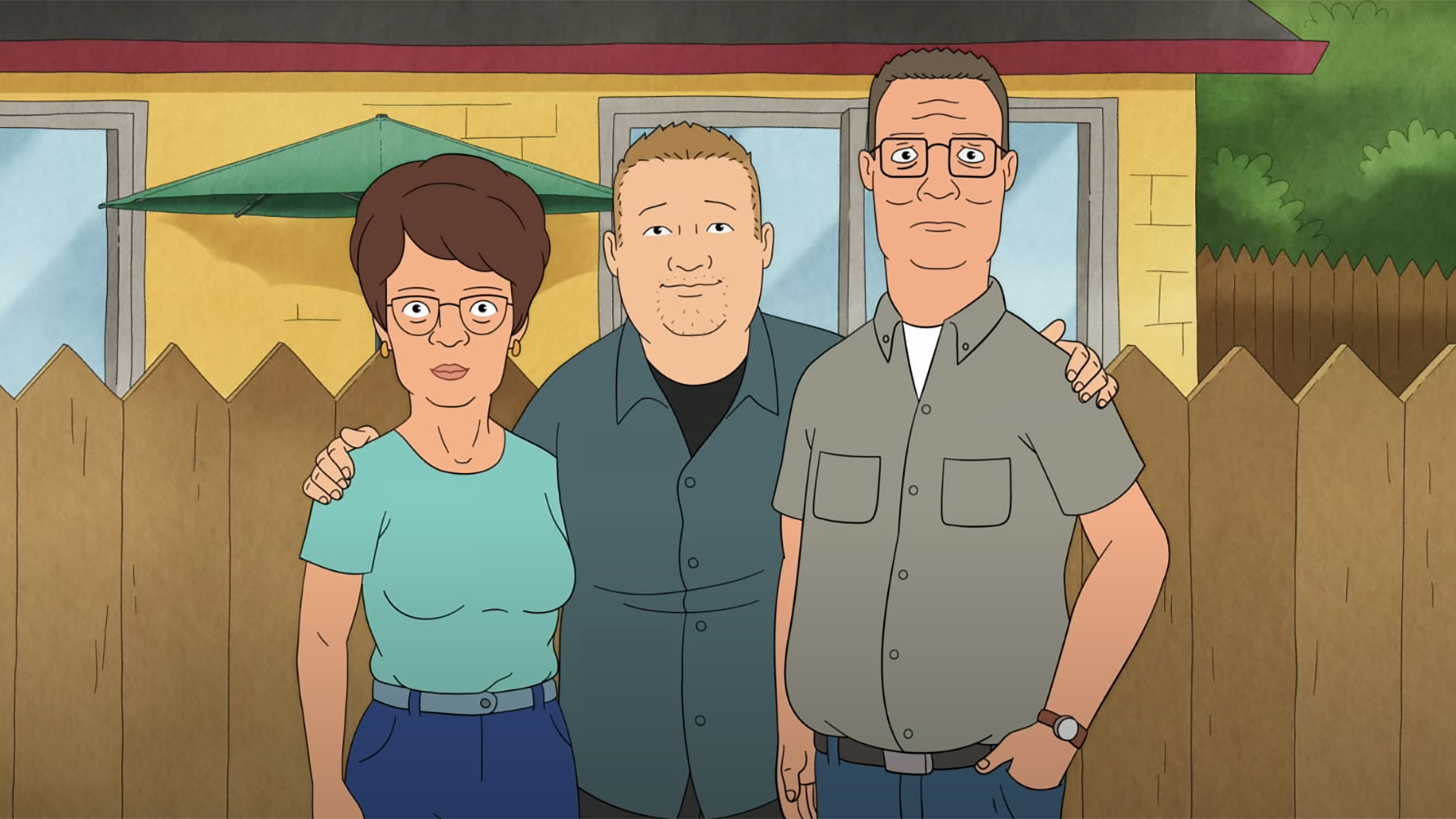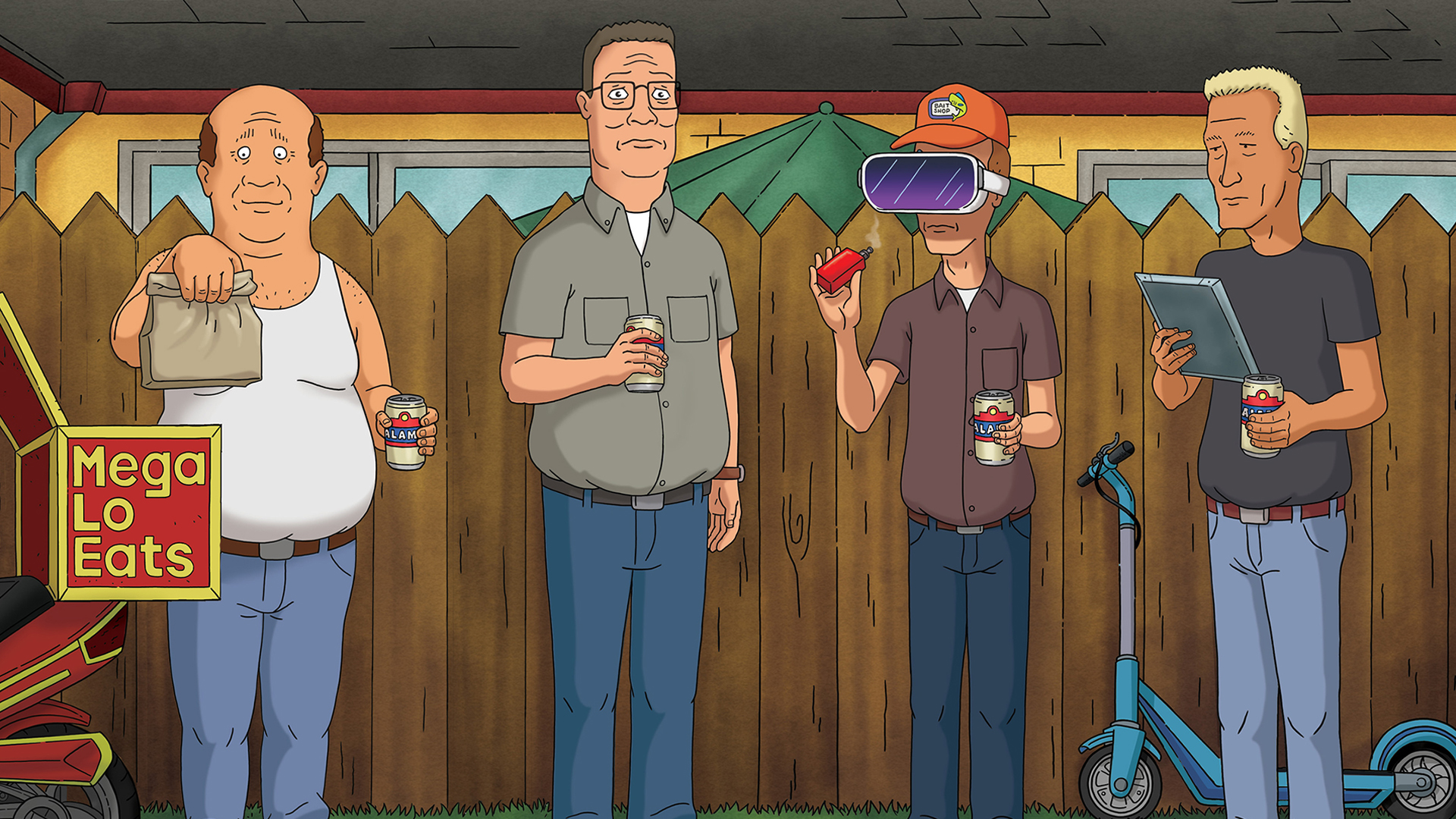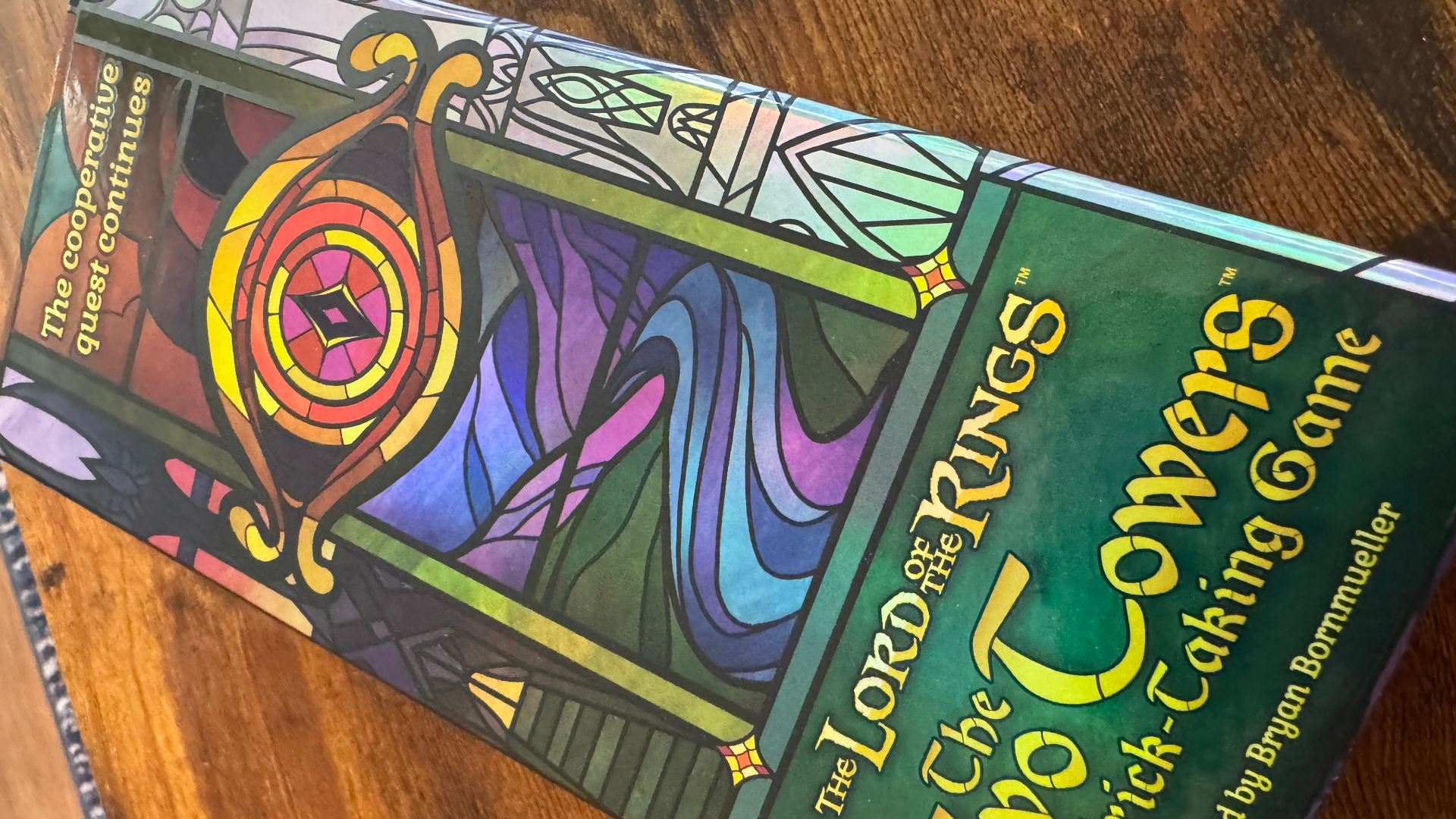King of the Hill is committed to the idea that everything changes – that's why I’m convinced it's the perfect show to bring back
OPINION | While most animated shows are stuck in time, King of the Hill has always kept up with the changing world around us, which makes it prime reboot material

Weekly digests, tales from the communities you love, and more
You are now subscribed
Your newsletter sign-up was successful
Want to add more newsletters?

Every Friday
GamesRadar+
Your weekly update on everything you could ever want to know about the games you already love, games we know you're going to love in the near future, and tales from the communities that surround them.

Every Thursday
GTA 6 O'clock
Our special GTA 6 newsletter, with breaking news, insider info, and rumor analysis from the award-winning GTA 6 O'clock experts.

Every Friday
Knowledge
From the creators of Edge: A weekly videogame industry newsletter with analysis from expert writers, guidance from professionals, and insight into what's on the horizon.

Every Thursday
The Setup
Hardware nerds unite, sign up to our free tech newsletter for a weekly digest of the hottest new tech, the latest gadgets on the test bench, and much more.

Every Wednesday
Switch 2 Spotlight
Sign up to our new Switch 2 newsletter, where we bring you the latest talking points on Nintendo's new console each week, bring you up to date on the news, and recommend what games to play.

Every Saturday
The Watchlist
Subscribe for a weekly digest of the movie and TV news that matters, direct to your inbox. From first-look trailers, interviews, reviews and explainers, we've got you covered.

Once a month
SFX
Get sneak previews, exclusive competitions and details of special events each month!
It’s hard not to treat a TV reboot without at least a little suspicion. Many series are products of a specific creative team working during a specific era of experience under specific circumstances, so the idea of "Well, we're just gonna bring it back, good as new!" reeks of hubris. However, if there's one classic show that might work for a TV comeback tour, it's King of the Hill. And that's mostly because the show was always dedicated to the idea that everything changes and that it's usually up to us to keep up with it all.
King of the Hill, the story of a family that lived in the suburbs of Arlen, Texas, could feel like an outlier in the landscape of adult animation. Its closest peer, The Simpsons, had its best years marked by not only pitch-perfect satire, but a delightful humanism that showed a real care for the struggles of the titular family. King of the Hill exhibited the same trait – Hank Hill, his wife Peggy, his son Bobby, and his niece Luanne, were all granted a kind of curious sympathy. They weren't just gag machines, but people capable of growth through introspection. Like the Simpsons, rarely do they initially seek out change for themselves, but change is often what they're called to perform.
Unlike The Simpsons, though, which experienced periods of stagnation that usually coincided with the idea that the father, the dim-witted Homer Simpson, was beyond change, King of the Hill typically stuck to its guns. While maintaining the cyclical pattern of sitcom television, which demanded that overall growth in the wider series be incremental, episodes provided an arc that meant that at least one character was forced to face repercussions for their habits.
In the early going, this character was usually Hank Hill, whose conservative stodginess often provided a foil to his son, Bobby. Bobby embraced little of the masculinity that Hank held sacred, and his tastes came off as both juvenile and esoteric to his father. Hank would realize, over and over again, that fatherhood was rarely about the specific interests that you passed down, but in the values you impart to help your child grow up.
All change

It also meant diverting from the way that you were raised (Hank's father was the abrasive Cotton Hill, and much of Hank's "Ya gotta BE A MAN" idealism came from trying to impress his eternally unimpressed father.) By being a different kind of Dad, Hank would be able to free his son from that pattern of feeling insufficient in the face of the family patriarch. He could be, well, himself.
The original King of the Hill took Bobby through middle school and all of the raging hormones and pubescent angst that came with it. Bobby, a "late bloomer" in comparison to his friends, had to learn how to navigate the preteen minefield, one chock-full of its own expectations and embarrassments. Peggy Hill might have had the biggest ego on the entire show, but even she faced her own conflicts: What does she want out of her life? How does her outlook compare to the other women in Arlen, some of whom are expected to merely be housewives? And finally, Luanne had to get a grasp on her own aspirations, especially as she came from a family that gave her little reason to dream for anything.
This is just a drop in the bucket of King of the Hill's cast, many of whom were designed with surprising bits of depth (there was a lot of pathos to be mined from Dale's conspiracy theories being tested, or the ways in which Bill's loneliness manifested itself). Just picking a random episode, especially in the first few seasons, gave you a snapshot of "small town livin'". But instead of settling for the idea that their sense of morality was inherently superior to that of the wider world, a theme that's a staple of fictional settings like Arlen, King of the Hill made it clear that being able to adapt or at least accept someone else's changes was the greatest virtue one could have. This ranged from John Redcorn realizing that his affair with Dale's wife could hurt people to Hank Hill learning to grieve over his run-down truck.
King of the Hill's reboot takes place a few years after the finale of the original series, a time jump that promises not only some physical changes for the characters but also a look into how their personalities have changed as well. However, King of the Hill's greatest treatment of change occurs in the microcosm of the little stories it tells – of the constant realizations that you need to alter your course in order to be a better person. Because that's what real life is like. Rarely does one decide to change and then find their evolution to be smooth sailing. Usually it's the result of a thousand little decisions, and of battling back against your prior nature. Because if Hank Hill can do it, anyone can.
The new King of the Hill revival will premiere all 10 episodes on Hulu on August 4. For more, check out our list of the best new TV shows coming your way in 2025 and beyond.
Daniel Dockery is a writer for places like Crunchyroll, Polygon, Vulture, WIRED and Paste Magazine. His debut book, Monster Kids: How Pokemon Taught A Generation To Catch Them All, is available wherever books are sold.
You must confirm your public display name before commenting
Please logout and then login again, you will then be prompted to enter your display name.




